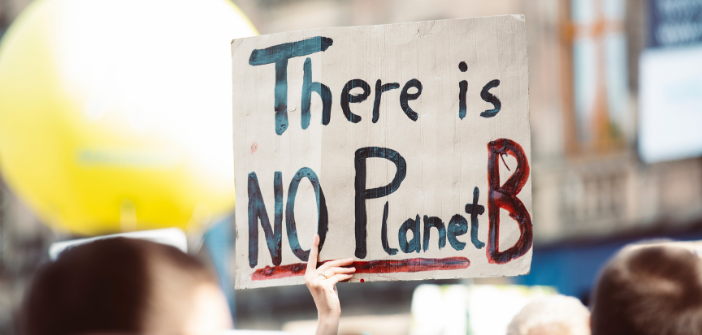The IPCC, Intergovernmental Panel on Climate Change, has just released on Monday, February 28, a new part of its sixth report.
This latest report provides a state of the climate crisis, increasingly detailed and alarming.
“Life on Earth can recover from major climate changes by evolving into new species and creating new ecosystems. Humanity cannot”, they warn.
It is undeniable that human activities are the cause of climate change. We are observing more and more extreme weather events: heatwaves, heavy rainfall and droughts, weather conditions conducive to fires, ocean acidification, increasingly irreversible losses in terrestrial, freshwater, coastal, and open ocean ecosystems…
Also, human and animal diseases are appearing in new regions.
If warming exceeds 1.5°C, even temporarily, certain consequences would be irreversible.
Already, between 3.3 and 3.6 billion people live in very vulnerable situations to climate change. About one billion people could live by 2050 in coastal areas threatened by rising sea levels.
The new part of the report further addresses the interconnection between nature, climate, and populations, and thus the necessity to preserve ecosystems, which themselves protect the conditions of human life on Earth. As climate, humans, and ecosystems are interdependent, the threats posed by human activities and climate upheaval to ecosystems put us at risk in return.
UN experts remind us that it is not too late to fight climate change, but that each “additional delay” reduces humanity’s chances of building a livable future.
Furthermore, in January 2022, humanity crossed the 5th planetary boundary: that of “chemical pollution” or “introduction of novel entities into the biosphere.”
Out of nine established boundaries, it is the fifth to have been crossed.
Planetary boundaries are the various limits identified as regulating the integrity of the Earth system; they define the space within which humans can function without compromising that balance.
We are nonetheless talking about a threat to the stability of the global ecosystems upon which humanity depends.
This 5th boundary includes all forms of life, substances, and materials that did not exist during the Eocene period, meaning entirely anthropogenic novel entities (related to what is created by human activities), which did not appear naturally.
The production of synthetic materials has been multiplied by 50 since 1950. And between 2022 and 2050, this production is expected to triple.
Plastic production increased by 79% between 2000 and 2015.
The total mass of plastics on the planet now represents more than twice the mass of all living mammals.
By surpassing these boundaries, we exceed thresholds called “irreversibility thresholds,” so ecosystems cross “ecological tipping points.” Planetary boundaries establish a balance favorable to the flourishing of life on Earth, so breaking this balance means bringing, with transitional states, successive shocks that will intensify.
We were able to discuss these topics with Greenpeace Nice, which has been fighting at its level for years against the collapse of biodiversity.
Greenpeace is mobilizing in Nice to bring attention to the climate, especially during this election campaign period. Indeed, their observation is simple: there is not enough talk about climate during this presidential campaign. A real awareness is needed.
The climate we will experience in the future depends on the decisions we make now.
These indicators of danger should push us to change our direction and our societies.
While efforts have been made to reduce CO2 emissions, the authors of the IPCC report denounce a mismatch of means implemented in the face of the rapidity of changes, a sign of a “lack of political will.”


